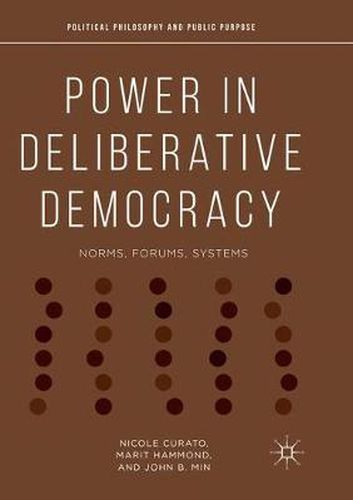Readings Newsletter
Become a Readings Member to make your shopping experience even easier.
Sign in or sign up for free!
You’re not far away from qualifying for FREE standard shipping within Australia
You’ve qualified for FREE standard shipping within Australia
The cart is loading…






Deliberative democracy is an embattled political project. It is accused of political naivete for it only talks about power without taking power. Others, meanwhile, take issue with deliberative democracy’s dominance in the field of democratic theory and practice. An industry of consultants, facilitators, and experts of deliberative forums has grown over the past decades, suggesting that the field has benefited from a broken political system.
This book is inspired by these accusations. It argues that deliberative democracy’s tense relationship with power is not a pathology but constitutive of deliberative practice. Deliberative democracy gains relevance when it navigates complex relations of power in modern societies, learns from its mistakes, remains epistemically humble but not politically meek. These arguments are situated in three facets of deliberative democracy-norms, forums, and systems-and concludes by applying these ideas to three of the most pressing issues in contemporary times-post-truth politics, populism, and illiberalism.
$9.00 standard shipping within Australia
FREE standard shipping within Australia for orders over $100.00
Express & International shipping calculated at checkout
Deliberative democracy is an embattled political project. It is accused of political naivete for it only talks about power without taking power. Others, meanwhile, take issue with deliberative democracy’s dominance in the field of democratic theory and practice. An industry of consultants, facilitators, and experts of deliberative forums has grown over the past decades, suggesting that the field has benefited from a broken political system.
This book is inspired by these accusations. It argues that deliberative democracy’s tense relationship with power is not a pathology but constitutive of deliberative practice. Deliberative democracy gains relevance when it navigates complex relations of power in modern societies, learns from its mistakes, remains epistemically humble but not politically meek. These arguments are situated in three facets of deliberative democracy-norms, forums, and systems-and concludes by applying these ideas to three of the most pressing issues in contemporary times-post-truth politics, populism, and illiberalism.